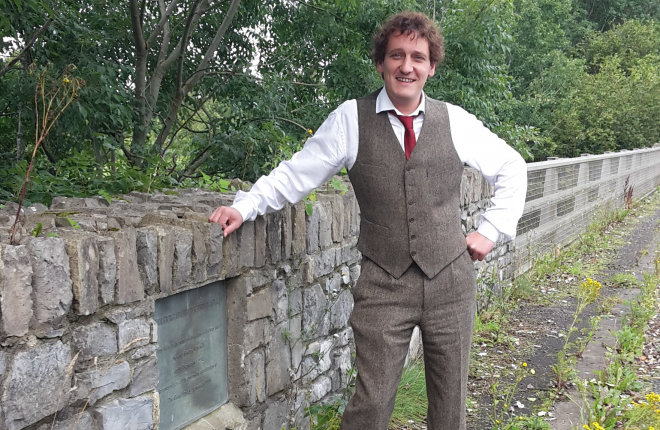
A FERMANAGH lecturer at Oxford has said a Leave vote on Thursday could have unforeseen, long-term implications for the county.
Peter Leary is the Canon Murray Fellow in Irish History at Oxford University, and will soon release his book ‘Unapproved routes: Histories of the Irish border, 1922-72’, which explores issues of state and identify while looking at the impact the border had on everyday life in the region.
The Enniskillen man pointed out the disruption and inconvenience the border caused for people in decades past, due to the form filling, delays, and restrictions on movements and goods.
“One wartime observer, Phillip Callahan, who served in the US Army Air Forces near Belleek, described it as ‘one of the worst examples of frontier bureaucracy in existence,’” said Mr Leary. “For many on both sides there was also an emotional experience of dislocation, a sense of being set apart from familiar places and people.”
Mr Leary said, as a historian, he was “better placed to talk about the past than to predict the future” and said it was “very difficult for anyone to say exactly what the border would look like after a Brexit vote.”
He added, however: “If we were to go back a hundred years or even slightly further to the early twentieth century, then very few people could have imagined that a border would soon separate Clones from Fermanagh or Derry from Donegal.
“The border was not something that many, if anyone, on either side wanted or expected. Even after partition, nobody sat down and thought ‘let’s create a customs barrier’ but once the border was in place it became an unintended consequence of diverging tax regimes.
“Clearly a Brexit would bring back or ‘harden’ the border on some level, probably in small ways at first. But we could be talking less about what we might see immediately, than about how relationships between Britain and Ireland, Britain and Europe, and North and South might then evolve over ten, or twenty, or thirty years or more.”
Mr Leary added the people of Fermanagh have always found a way of coping, though, showing “great creativity in finding ways to make do and even sometimes turn it to their own advantage.”
“Smuggling was, of course, the best known example of this,” he said. “But that was always about making the best of often very difficult circumstances.”








